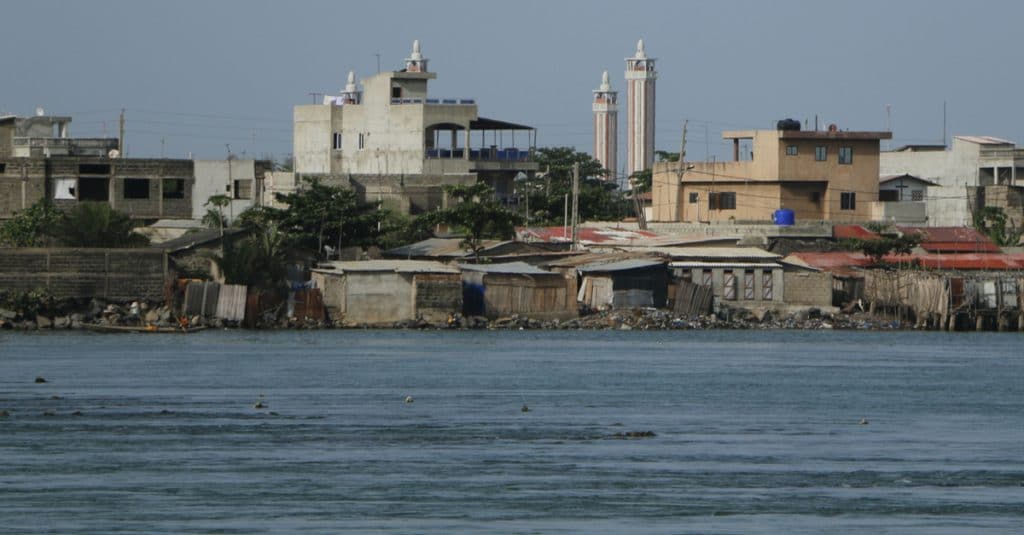The retreat of the coastline will certainly increase in the coming weeks in the Beninese capital, Cotonou. The erosion will mainly affect the eastern side of the city, which has already been identified by the Benin Institute of Fisheries and Oceanological Research (IRHOB) as the sector most affected by the retreat of the coastline, i.e. 0.03 metres per year. This area of Cotonou is one of the places that the Beninese government advises people not to visit in the coming weeks.
In a press release on 7 April 2022, the Beninese Minister for the Living Environment and Sustainable Development warned that the next high tides will be higher on the Beninese coast than what has been observed in recent months. “Like the coasts of the countries of the Gulf of Guinea, the Beninese coast has been experiencing violent waves from the Atlantic Ocean for several months,” said Minister José Didier Donato. The minister warned coastal residents against this extreme meteorological phenomenon, which in some places causes significant human and material damage. In addition to the eastern part of Cotonou, the minister also mentioned the Alhoboé coastal segment, to the west of the city, as a critical zone where any installation is not recommended.
Coastal erosion cost $3.8 billion in 2017
According to the Institut de recherches halieutique et océanologique du Bénin (IRHOB), the risk of submersion or wave impact on the coast is considered when the coast is in conjunction with high tide and a large swell. This can lead to several impacts on the coast, including coastal erosion, flooding, loss of property and habitat, and loss of life on the coast.
Read also-WEST AFRICA: FGEF allocates €2.6m for the protection of coastal ecosystems
Benin, like the rest of West Africa, is very much affected by coastal erosion, one of the most visible consequences of global warming, which causes sea level rise. According to a World Bank study, environmental degradation in the coastal areas of Benin, Ivory Coast, Senegal and Togo cost $3.8 billion, or 5.3% of the GDP (gross domestic product) of the four countries, in 2017.
Boris Ngounou
